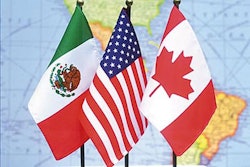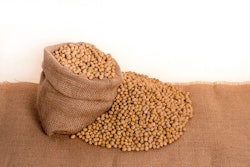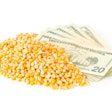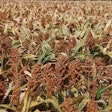According to a report from the Clarion Ledger, President Trump's decision to impose steep tariffs on steel imports could have unintended consequences on Mississippi soybean farmers.
China in particular has raised that specter of retaliation over the tariffs. It annually imports 30 million tons of soybeans from the U.S.
Soybeans are a billion dollar business in Mississippi and the third highest agricultural crop behind poultry and forestry, according to the Mississippi Department of Agriculture and Commerce. More than 110 million bushels were produced in the state in 2017 from 3,274 farms.
According to Trent Irby, a Mississippi soybean specialist, almost 2.2 million acres in Mississippi were harvested for soybeans in 2017.
Of those acres, half of the crops were shipped overseas, says Keith Coble, professor and head of agricultural and economics at Mississippi State University.
"We export almost half of every bushel of soybeans that we produce in the country," Coble says. "If you think about the Mississippi River, where a lot of those beans pass through, half the bushels are going through the river and to another part of the world."
The majority of the soybeans are shipped to China, the European Union, Japan, Mexico and Taiwan, he says.
While the impact of the proposed tariffs is still unknown, Coble says, other countries are likely to retaliate financially against the United States.
"Other countries, if they respond, will respond not necessarily in the same industry but where they think they could hurt the other country the most," he says.
For the United States, that very well could be soybeans.
"We're very, very concerned," said Patrick Delaney, policy communications director for the American Soybean Association. "We've heard directly from the Chinese that one of the areas they're looking to hit in retaliation are soybeans. We sell more soybeans to them than to the rest of the world combined so were very nervous."


















